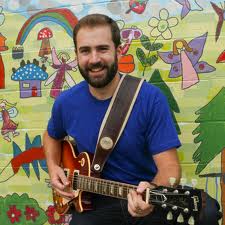|
Mme Bolegoh is always prepared, so when the snow hit today, all of the grade 1 classes were ready to make "maple syrup in the snow" outside. This sticky Quebec tradition was a real treat for the classes. Merci!
We had our first Tennyson Circles of the year on Tuesday, December 17th between 1:15 PM and 2:15 PM. Tennyson Circles is a time when all students are mixed into multi-age groups, thereby giving them the opportunity to meet and work with students of other grade levels. The Tennyson Circle meets with a staff member and together, collectively partake in an activity. During this Tennyson Circle, the groups met the members of their circle, participated in the MindUP breathing exercise and created a festive art project together. The advantage is that students get to meet and work with a staff member and students they might otherwise not get to know, thereby creating an atmosphere of connectedness throughout the school. Thank you to Mme Lorieau for preparing these Tennyson Circles. Thank you to Mme Lyse (Tennyson's teacher librarian) for sending in the following message:  Allo everyone! What a great way to enjoy the holidays with a great book!! Students, and parents/guardians are invited to take a pile of books from the library and create moments of enjoyment with family, while sharing and reading books. There is nothing like reading a good book and be immersed in the story lines of an author. Happy Holidays and share these magic moments with your family. Will see you all in 2014. Madame Lyse Teacher-librarian @Tennyson Musician (and former Tennyson music teacher) Will Stroet will be working with Grade 1 students in the new year. Check out his video Hockey's Just Really Cool which was filmed a couple of years ago at Tennyson and features many Tennyson students.
Thanks to the families who helped fill the Food Bank boxes with food last week. It is great to see students helping others. The Lost & Found items will be cleared out this Wednesday and donated to charity. Last chance to get your items! Come join the fun before school ... there will be carolling in the lobby every morning this week. Thank you to Maria Corak, Peter Mikulash, and Max Botham for accompanying on the piano. Need a last minute gift or stocking stuffer? Tennyson toques are back! $10 (at cost).
Available in Tenny Orange, Charcoal Grey, Snow White, and Pretty Pink. Sorry, Howl Black has sold out. Available in the lobby after school until the holidays start or at the morning carolling next week. Or email [email protected]  Thank you to PAC secretary Susan Hynes for the detailed summary of the MindUp presentation from the Parent Education Series after last week's PAC meeting. Please discuss and share your thoughts using the Comments at the end of this article. Tennyson teachers are using the MindUP program in classes this year to support the new School's Plan goal to "promote student well-being and learning using a holistic approach". The MindUP program provides students with skills aimed at improving a child's social and educational competence. Molly Stewart Lawlor, primary author of the Mind Up Program, and a researcher at UBC, gave a presentation to parents following the PAC meeting on December 3rd entitled "Connected Families: Mindfulness Engagement for Families". MindUP aims to develop self-regulation, which involves helping children learn to manage their emotions in order to improve their attention and behaviour to achieve goals. Studies have shown that children with higher levels of self-regulation perform better. Molly advised that a child's mood impacts their ability to self-regulate. Children in a bad or sad mood have been found to not perform as well as they have more difficulty self-regulating. She noted that stress is the number one thing that may impair a person's ability and performance. The brain can be trained to have more self-regulation. Core executive functions include cognitive flexibility, inhibitory control (self-regulation/self-control) and working memory. Complex executive functions include problem solving, reasoning and planning. A person's level of executive functioning is a strong predictor of school readiness. What can we do to promote executive functioning in children?
Molly discussed the continuum between depression and anxiety. Those at the depression end tend to dwell on the past, while those at the anxiety end of the continuum tend to worry about what is going to happen next. We need to try and help children consider new challenges as an opportunity rather than a threat. The goal of mindfulness is to intentionally bring yourself into the moment and to focus on the present to promote positivity and optimism. The MindUP program uses breathing techniques and meditation to help train the child's brain to focus on the present. Mindfulness training starts with educating the children on the various parts of the brain and the role they play in reactions and emotions. The brain’s response to stress is linked to the amygdala. When we’re calm, this filter is wide open and information flows to the prefrontal cortex. When we feel negative or stressed, our ability to think and make good decisions are inhibited. Information stays in the amygdala and doesn’t flow to the prefrontal cortex so we can think about how to react. Parents may hear children say they "flipped their lids", which means incoming information triggers the amygdala rather than the prefrontal cortex. The MindUP program aims to help children build response flexibility to enable them to pause before they react. It also aims to promote resilience. A key way to boost resilience is to promote happiness. Molly advised that research has shown that happiness is related 50% to genetics, 10% to life circumstances (how rich or poor, where you live) and the remaining 40% to intentional activity. Molly recommended the book "The how of happiness". By Sonja Lyubominsky. Molly spoke about what types of intentional activities promote happiness. Gratitude practice, making a list of the three things you are grateful for or that went right today, assists in rewiring the brain to look to the positive. Doing random acts of kindness for others also results in increasing happiness and peer acceptance. Molly cautioned against using extrinsic rewards to encourage or promote desired actions as they can undermine altruistic tendencies in children. Studies have shown that giving children rewards for kindness does not result in more kindness. They also don't allow the child to experience the intrinsic or internal reward of doing good. She recommended asking the child "how do you feel when you do something kind." Or "how do you think the other person feel when you do something kind for them?" She cautions against becoming praise junkies. Instead, focus on the behaviour or the effort for a job well done. She recommends author Alfie Cohen's work on praise to learn more. The focus should be on the effort, so that children learn by experience. Effort is what matters, children need to learn that they have to work hard in order to succeed. Molly noted that children who are told they are smart from an early age can develop a fixed mindset, not taking risks so that they don't risk sacrificing their identity as "smart". Molly provided a number of resources:
She will also provide a copy of her PowerPoint presentation. Now is your chance! The Lost & Found (west end of main hall, across from room 105) will be cleared out and donated on Wed, Dec 18. They were lost, they were found, but they will soon be lost permanently! |
Blog SubmissionsPlease send any blog entries to [email protected] (and include a photo if you can). See our blog guidelines.
Blog Archives
June 2024
Blog Categories
All
NewslettersVisit our Newsletters page for the latest school newsletters (and some old ones too)
|



 RSS Feed
RSS Feed
